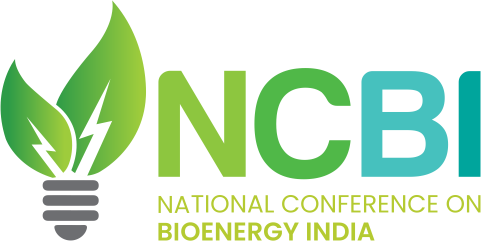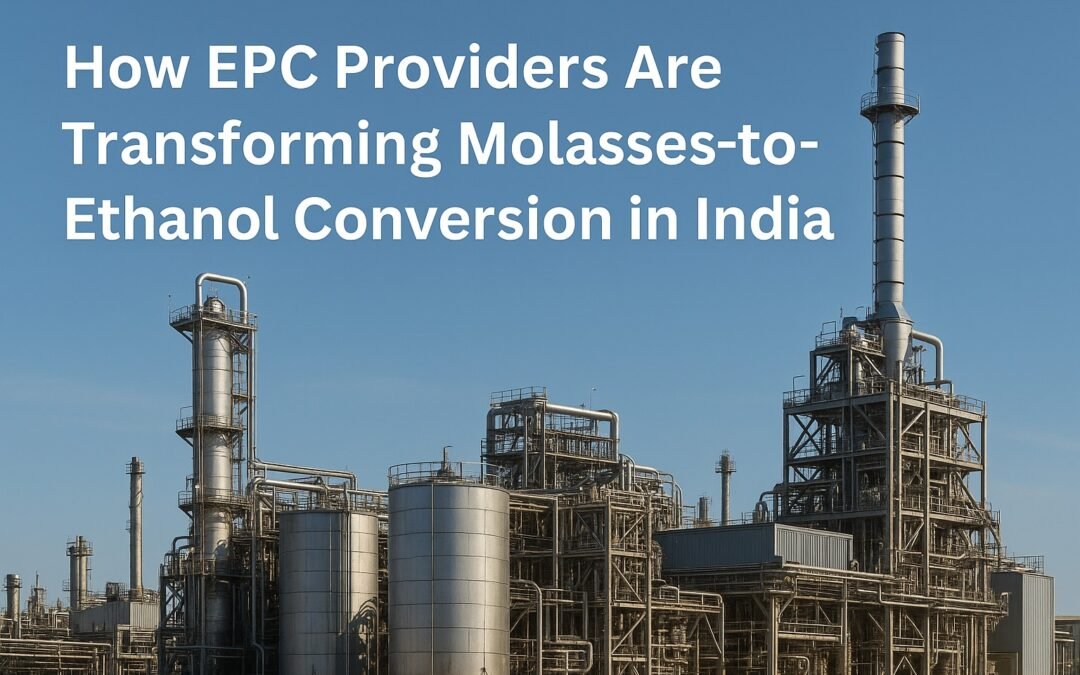Introduction
Molasses, a leftover syrup from sugar production, has long been used to produce ethanol. But in recent years, this once-basic process has been dramatically upgraded—thanks to the growing role of Engineering, Procurement, and Construction (EPC) companies. These specialized firms are completely changing how ethanol plants operate, offering smarter engineering, modern equipment, and end-to-end project management.
Today’s ethanol facilities are no longer just simple distilleries. They’ve evolved into advanced biorefineries featuring round-the-clock fermentation, heat recovery systems, carbon dioxide capture, and intelligent automation. Events like the bio energy expo 2025, biofuel expo 2025 india, and the green energy exhibition are spotlighting these innovations, helping mill owners across India modernize rapidly.
1. Molasses-to-Ethanol: The Basics
Molasses is naturally rich in sugars, making it ideal for fermentation. Traditionally, ethanol was produced through a batch process—fill, ferment, distill, repeat. While functional, it’s far from efficient.
Enter EPC providers.
They’ve introduced:
- Continuous fermentation that runs nonstop and improves ethanol yield.
- Integrated distillation systems that use less steam.
- Byproduct management, turning waste into CO₂ for sale, animal feed, or power.
This shift toward more sustainable, integrated biorefineries reflects India’s broader green energy transformation.
2. Why EPC Providers Matter
So, what exactly do EPC firms bring to ethanol production?
A. Smarter Engineering
EPCs design complete plants, choosing the right fermenters, boilers, pipelines, and safety systems. Every component is planned to reduce downtime and maximize efficiency—helping each liter of molasses produce more ethanol.
B. Cost-Effective Procurement
They also know where to source the best equipment at the best prices. Thanks to bulk purchasing and industry partnerships, EPCs save money without compromising on quality or timelines.
C. Complete Construction
From civil work to installing machinery, EPC teams handle the entire project. Their full-service approach ensures everything is integrated properly—plus, they often showcase their work live at green energy exhibitions and expos.
D. Reliable Support
Even after a plant is built, EPCs stick around. They test systems, train plant staff, fine-tune operations, and often offer performance guarantees. This gives plant owners peace of mind and confidence in hitting production goals.
3. Game-Changing Technologies by EPCs
EPC providers are leading the way with breakthrough innovations in ethanol manufacturing:
A. Boosted Fermentation
- Using enhanced yeast strains to extract more ethanol
- Co-fermenting different sugar types
- Recycling systems that cut down yeast use and improve output
B. Energy Efficiency & Heat Recycling
- Steam recovery through multi-effect evaporation
- Heat exchangers that reuse waste energy
- Water treatment systems that recycle plant wastewater
C. CO₂ Recovery
- Capturing fermentation gases
- Selling purified CO₂ to beverage and fuel industries
- Reducing emissions while creating new revenue
D. Automation & Control
- SCADA and IoT systems for live monitoring
- Predictive analytics for smoother plant operations
- Smart sensors for enhanced safety
These innovations are frequently demonstrated at events like the biofuel expo 2025 india, helping sugar mills see the value firsthand.
4. Real Success Stories
A. Maharashtra’s Sugar Mill Upgrade
One large sugar mill in Maharashtra teamed up with an EPC firm to launch a 350 KLPD (kiloliter per day) ethanol plant. The results were impressive:
- A 20% increase in ethanol output
- Steam usage cut by 30%
- Extra power generated and sold to the grid
Their success story was featured at the green energy exhibition, inspiring similar projects nearby.
B. Plug-and-Play Ethanol Plant
Another EPC company designed a fully modular plant for a refinery. Pre-assembled systems, quick setup, and plug-in utilities allowed the plant to go live in just 10 months. This innovation was a highlight of the bio energy expo 2025.
5. Connecting with Broader Green Energy Systems
Ethanol plants built by EPCs often work in sync with other renewable energy sources:
- Cogeneration (CHP): Produces electricity and heat for in-house use
- Anaerobic digestion: Converts leftover biomass into biogas
- Ethanol blending: Directly fuels local vehicles with blended fuel
- Green hydrogen: Emerging as a clean companion fuel
This approach results in multipurpose factories that produce ethanol, energy, fuel, and clean air—all topics covered at biofuel expo 2025 india panels.
6. Policy Support and Sustainability Gains
A. Government Backing
India’s biofuel push includes:
- Ethanol purchase incentives
- Subsidies on interest
- Viability Gap Funding
- Mandatory ethanol blending
EPC companies help clients qualify for these programs by designing certified, efficient plants.
B. Economic Upside
- Cleaner energy than fossil fuels
- Lower emissions across transport and industry
- Reduced dependence on external power
- Stable income for sugar mills even during market dips
C. Eco-Friendly Lifecycle
Thanks to energy recovery, smart waste management, and efficient designs, EPC plants lower carbon footprints while boosting profits.
7. What’s Fueling the Boom?
Ethanol Demand on the Rise
India aims for 20–30% ethanol blending by 2030, driving massive demand for efficient plants. EPCs are now racing to build facilities in every sugar-producing state.
Global Showcases Spark Growth
Events like the bio energy expo 2025, biofuel expo 2025 india, and green energy exhibition draw international buyers, tech developers, and EPC players—all fueling new deals and expansions.
Green Financing on the Table
Banks and climate-focused lenders are offering low-interest loans for projects led by experienced EPCs with performance guarantees.
8. Tackling Real-World Challenges
EPCs help overcome everyday issues faced by ethanol producers:
A. Molasses Quality
- Process flexibility allows mixing multiple batches
- Onsite labs monitor sugar content for better fermentation
B. Energy Costs
- Advanced boilers reduce fuel use
- Systems recycle steam and water to cut utility bills
C. Compliance
- EPCs handle government approvals and environmental permits
- Community engagement helps avoid legal delays
D. Seamless Execution
- Single-point project responsibility avoids coordination issues
- Modular construction reduces on-site disruptions
9. Looking Ahead: The Future of EPC-Driven Plants
A. Mixed Feedstock Biorefineries
Combining molasses, green hydrogen, and agricultural waste in a single facility to maximize output.
B. AI and Automation
Real-time controls, predictive maintenance, and learning systems are coming soon to every corner of the plant.
C. Export-Oriented Hubs
Designs optimized for shipping ethanol to Europe and Asia, supporting India’s ambition to become a global supplier.
D. Smart Energy Parks
Multiple plants connected by shared infrastructure, monitored remotely, and optimized for efficiency—a future model inspired by EPC innovation.
Summary
EPC companies are playing a key role in reshaping India’s ethanol industry. By integrating top-tier engineering, strategic procurement, and hands-on construction, they’re converting molasses—a sugar byproduct—into a powerful green energy resource.
With India’s ethanol targets rising and pressure to reduce emissions increasing, EPC-led plants are essential. From the bio energy expo 2025 to the biofuel expo 2025 india and the green energy exhibition, the momentum is clear: EPC providers are not just building ethanol plants—they’re building the future of clean energy.




